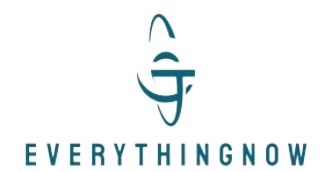The Pros and Cons of the Vegan Diet: Risks and Benefits
Discover the benefits and risks of the vegan diet to make an informed decision. Learn about the potential heart health benefits, weight loss advantages, reduced risk of certain cancers, but also the risks of nutrient deficiencies, protein deficiencies, overeating carbohydrates, and social challenges.
The vegan diet is becoming increasingly popular as more people seek to adopt a plant-based lifestyle for various reasons such as ethical concerns, environmental sustainability, and health benefits. However, like any diet, there are both benefits and risks associated with the vegan diet. In this article, we'll take a closer look at the risks and benefits of the vegan diet to help you make an informed decision about whether it's right for you.
Benefits of the Vegan Diet
-
Improved heart health: The vegan diet is low in saturated fat and cholesterol, which can help lower the risk of heart disease. A plant-based diet is also high in fiber, which can lower blood pressure and reduce the risk of stroke and heart attacks.
-
Weight loss: Studies have shown that people who follow a vegan diet tend to have a lower body mass index (BMI) and are more likely to lose weight than those who follow a standard American diet. This may be due to the high fiber content of the vegan diet, which can help you feel full and satisfied.
-
Reduced risk of certain cancers: Some studies have suggested that a vegan diet may lower the risk of certain cancers, such as colon and breast cancer. This may be due to the high intake of fruits, vegetables, and whole grains, which are rich in antioxidants and other cancer-fighting compounds.
-
Improved digestion: A vegan diet is high in fiber, which can improve digestion and reduce the risk of constipation, bloating, and other digestive issues.
Risks of the Vegan Diet
-
Nutrient deficiencies: A vegan diet can be low in certain nutrients such as vitamin B12, iron, calcium, and omega-3 fatty acids. These nutrients are typically found in animal products, so it's important to make sure you're getting enough of them through fortified foods or supplements.
-
Risk of protein deficiency: Plant-based proteins are often not complete proteins, meaning they lack one or more essential amino acids. This can lead to a protein deficiency if you're not careful to include a variety of protein sources in your diet.
-
Risk of overeating carbohydrates: A vegan diet can be high in carbohydrates if you're not careful to balance your meals with protein and healthy fats. This can lead to weight gain and other health issues.
-
Social challenges: Following a vegan diet can be challenging in social situations, such as dining out or attending social events. It may be difficult to find vegan options, and you may feel isolated or judged by others who don't understand your dietary choices.
In conclusion, the vegan diet can be a healthy and sustainable way of eating, but it's important to be aware of the risks and take steps to ensure you're getting all the nutrients your body needs. It's also important to be prepared for the social challenges that may come with following a vegan diet. If you're considering going vegan, talk to a registered dietitian or other healthcare professional to make sure you're doing it safely and healthily.

 Ashish Kumar
Ashish Kumar 












